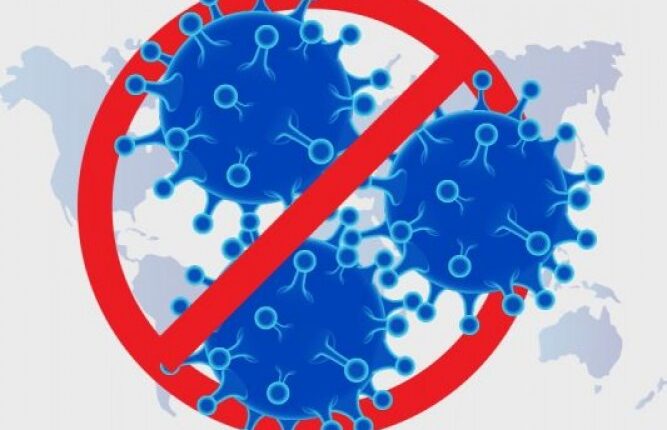Appreciating President Jokowi’s Success in Handling Covid-19 and Recovering the National Economy
By: Clara Diah Wulandari)*
The COVID-19 pandemic is one of the biggest challenges faced by Indonesia in the last few decades. Since the first case was confirmed in March 2020, the Government has immediately responded with strategic steps that put public health as the top priority.
The extraordinary policies implemented, such as Large-Scale Social Restrictions (PSBB), the establishment of the Committee for Handling COVID-19 and National Economic Recovery (KPC-PEN), and the acceleration of vaccination, have succeeded in maintaining health stability while restoring the national economy.
Indonesia’s handling of the pandemic has been recognized by many parties, including WHO Director General Tedros Adhanom, and Johns Hopkins University in the United States. According to them, this success cannot be separated from the active role of the Government in working together with all levels of society.
Through the flexible mechanism of the APBN that remains accountable, the Indonesian Government is able to balance health care with economic recovery. Steps such as the Implementation of Community Activity Restrictions (PPKM) which have been implemented since early 2021 until December 2022 are key to tackling the spread of COVID-19 at the micro level, while keeping the wheels of the economy moving.
The COVID-19 Vaccination Program that began in January 2021, in which President Joko Widodo was the first person to be vaccinated, also played a role as a game changer in handling the pandemic.
By early 2023, more than 448 million doses of vaccine had been administered to the public. This was one of the determining factors that allowed Indonesia to emerge from the health crisis with a level of public trust maintained. The change in pandemic status to endemic in 2023 was also concrete evidence that the handling of the pandemic was going according to expectations.
In addition to the health aspect, the Government also pays great attention to the social and economic impacts caused by the pandemic. One of the policies taken is the National Economic Recovery Program (PEN), which is regulated through PP 23/2020.
Febrio Kacaribu, Head of the Fiscal Policy Agency (BKF), stated that the government acted quickly with the principles of speed, priority, and caution in dealing with this crisis. In line with the extraordinary steps taken by the Government, the APBN is used flexibly, but remains within the corridor of high accountability.
In the PEN program, the Government has allocated a budget of IDR 1,645 trillion during the 2020-2022 period, which includes support for the health sector, social protection, and strengthening economic recovery.
The BKF chief considered the decision crucial to keep economic growth from worsening during the pandemic. Evidently, economic growth that had contracted to -2.07% in 2020 managed to recover to 3.70% in 2021, and continued to strengthen to reach 5.31% in 2022.
The fiscal policy also succeeded in suppressing the open unemployment rate, which had soared to 6.26% in 2021, to 5.83% in 2022, and continued to improve to reach 4.82% in 2024.
In addition, the poverty rate has also been gradually reduced, from 10.41% in 2021 to 9.03% in 2024. This positive domino effect reflects that Indonesia’s economic recovery is going well and continues to move towards stronger stability.
Y. Ambeg Paramarta, Head of the Policy Strategy Agency of the Ministry of Law and Human Rights, also highlighted the importance of collaboration between various elements of the nation in dealing with the multidimensional impacts of the pandemic.
According to him, all levels of society have worked together to implement the values of unity and togetherness to realize the nation’s revival from the crisis. This is not only reflected in the handling of the health crisis, but also in Indonesia’s role on the global stage, including when leading the G20 and ASEAN forums in 2023.
Ambeg stated that Indonesia’s economic achievements amidst the global crisis are clear evidence that the policies taken by the Government are able to bring this nation out of serious challenges. Economic growth reaching 5.31% in 2022, as well as controlled inflation rates, are indicators that Indonesia has found a path to post-pandemic revival.
Public support for government policies is also key to maintaining the stability and resilience of the national economy. Indonesia’s success in handling the pandemic and restoring the national economy is not only seen from economic growth figures, but also from the country’s ability to maintain international trust and continue global leadership. Through close collaboration between the government and the community, Indonesia has shown that recovery from the crisis is real and continues to this day.
All the strategic steps that have been implemented during the pandemic, both in the health and economic sectors, have made Indonesia one of the countries that has successfully emerged from this global crisis with high optimism.
The revival that is currently being felt is not only an achievement, but also a strong foundation to face future challenges and bring Indonesia towards a brighter era.
)* The author is a contributor to the Nusantara Reading Room
